Search Results
Showing results 661 to 680 of 799
Look Around: Hunt For Sizes, Shapes and Numbers
Source Institutions
In this activity, learners will participate in a scavenger hunt involving sizes, shapes, and numbers. This activity works well with a whole group, individuals, or families.
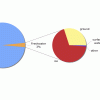
Earth's Water: A Drop in Your Cup
Source Institutions
This creative lesson plan provides a visual way for learners to gain knowledge about the finite amount of fresh water on Earth and encourages the discussion of the various ways to conserve this resour
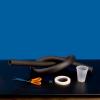
Build a Roller Coaster
Source Institutions
Learners design and build a roller coaster using simple materials. Learners experiment with potential and kinetic energy to get a marble to follow a track into a cup.

Puppet Power
Source Institutions
In this mechanical engineering activity, learners design shadow puppets with moving parts and use them to tell stories.
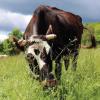
Sustainable Grazing
Source Institutions
In this activity, learners investigate the food, water, and space needs of common livestock animals.
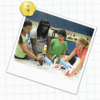
Grab and Go
Source Institutions
In this engineering activity, learners design and build a mechanical arm to lift a small item.
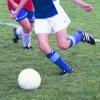
Soccer Kicks
Source Institutions
This activity (on page 2 of the PDF under SciGirls Activity: Soccer Ball Kick) is a full inquiry investigation into transfer of motion.
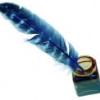
Get It Write
Source Institutions
In this activity, learners explore how pens have been engineered and re-engineered over time. Learners work as a team to develop a working pen out of everyday items.
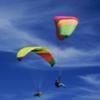
Playing with Parachutes
Source Institutions
In this activity, learners explore how parachutes are used to slow down moving objects. Learners work in teams of "engineers" to design and build their own parachutes out of everyday items.
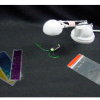
Why are Compact Fluorescent Bulbs More Efficient?
Source Institutions
In this activity, learners explore the relative efficiency of different bulbs, specifically incandescent vs. fluorescent.
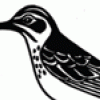
Mapping Mockingbirds
Source Institutions
This lesson plan revolves around studying the speciation of the Galápagos mockingbirds, which are on display at the California Academy of Sciences.

Shake it up with Seismographs!
Source Institutions
In this activity, learners explore the engineering behind seismographs and how technology has improved accurate recording of earthquakes.
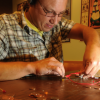
Build a Battery
Source Institutions
Learners make a simple battery out of "sandwiches" of aluminum foil, pennies, and a salt water-soaked paper towel.
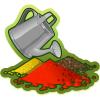
What Trickles Down?
Source Institutions
Learners design their own experiment to explore the permeability of different materials such as soil, sand, gravel, and marbles.
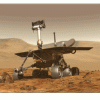
Design a Lunar Rover!
Source Institutions
In this team design challenge (page 2-10 of PDF), learners design and build a model of a Lunar Transport Rover that will carry equipment and people on the surface of the Moon.
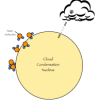
Do Cities Affect the Weather?
Source Institutions
In this activity, learners explore clouds and how they form.
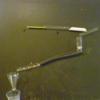
Magnetic Marble Run
Source Institutions
Learners explore magnetism and motion as they build a simple marble run. Learners test different arrangements of plastic and cardboard tubes, bottles, and cups on a magnetic board.
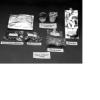
Ripening of Fruits and Vegetables
Source Institutions
In this activity, learners test the rate of ripening fruit and vegetables and use a chemical to inhibit the ripening process.
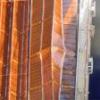
Folding Matters
Source Institutions
In this activity, learners explore how the process of folding has impacts on engineering and is evident in nature.
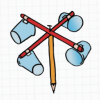
Twirling in the Breeze
Source Institutions
In this engineering activity, learners build a device (an anemometer) to measure how fast the wind is blowing.
